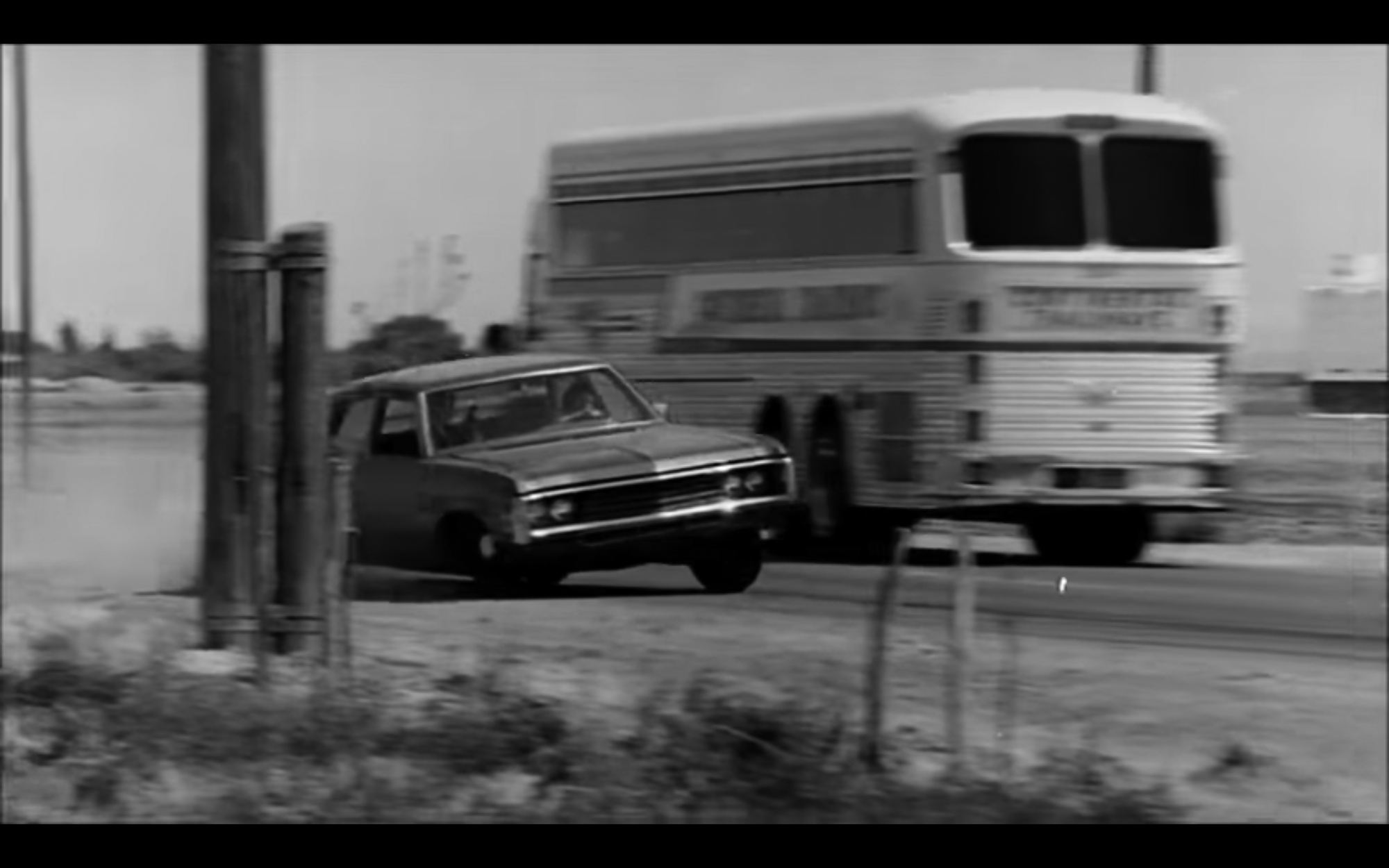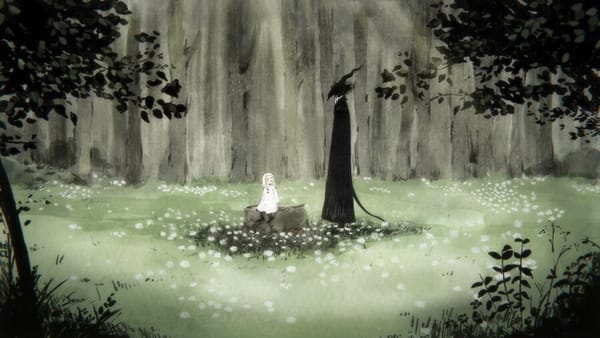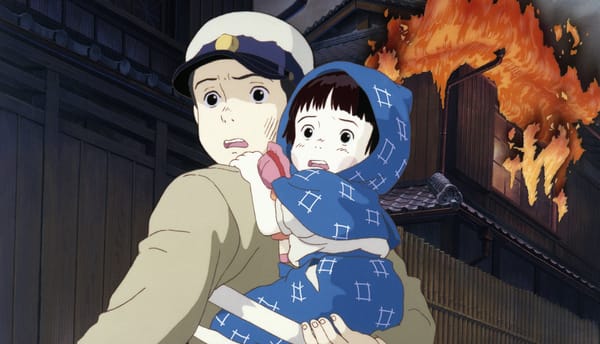Film Review: “Nora Helmer” and “The Getaway”
by Vic Neptune
Rainer Werner Fassbinder’s Nora Helmer (1974) and additional words about Sam Peckinpah’s The Getaway (1972).
I’m not comparing Fassbinder’s shot on video TV movie, Nora Helmer, with the vehicular mayhem in Peckinpah’s chase movie. Both, however, concern escapes by the main character. In The Getaway, Doc (Steve McQueen) buys a truck from Slim Pickens for thirty-thousand dollars, escapes with Ali MacGraw into Mexico, half a million in a leather collapsible suitcase. Nora Helmer, from Henrik Ibsen’s 1879 drama A Doll’s House, has a more tightly controlled outburst towards her dense husband Torvald, who treats her as his plaything. When Nora tells Torvald the basic “We need to talk” statement, George Bernard Shaw related close to the time, “this freed up characters to talk to each other.”
I’ve enjoyed theater experiences. Good acting is good acting, on screen or otherwise.
A difference between Nora Helmer and The Getaway is the editing style. There are other differences. Fast-paced action versus people talking without benefit, or curse, of the type of tense and serious music one hears in a Transformers film. Fassbinder’s movies, character driven as they are, also feature extravagant effects. His use of mirrors harks to his love of Douglas Sirk’s melodramas. Nora Helmer features obstructing objects in many foreground shots: out of focus railings, decorations on mirrors, Nora’s face bifurcated by the joining of two mirror edges. In one shot, Torvald Helmer’s eyes narrow to pinpoints from a pattern on a mirror. He’s a fascinating study. He’s what my ex-girlfriend would call a stick in the mud. Set in his ways. Convinced he’s right about women and what they want and need. In the play, he calls her his little bird, his squirrel. He treats her like a spoiled favorite child. The two have three children. The kids in the play are in two scenes, but Fassbinder left them out, cutting two scenes that had little to do with the main problem pondered over by Nora Helmer in the film. “Should I stay or should I go,” as the Clash put it.
I reread A Doll’s House in preparation for this review blended with an essay. Reread. When I was a high school senior in English Honors class we read A Doll’s House. Rereading it showed me how much I missed the first time. Strange that my teacher had her students read and discuss this play, and watch the Joseph Losey adaptation with Jane Fonda, and none of us had been in a long-term relationship. It helps to have been in a long-term relationship to understand A Doll’s House. Torvald and Nora spiral around each other in their habits. She’s been around this man for eight years. He guides her whenever they’re together. Some might offer the idea that The Stepford Wives borrows from A Doll’s House, at least in a degree of dramatic exaggeration.
The most inexplicable thing about Nora Helmer, and Ibsen’s character, is her change from a flighty, overly cheerful supposedly happily married woman and mother of three, to a stern and thoughtful commander of a new situation between a wilted Torvald and herself. Watching Nora Helmer gave me a possible answer. Nora Helmer is, throughout the play and film, preparing to leave. The bubbly Nora is not the real Nora. The real one is revealed in the final act. In Acts One and Two we see Nora practiced at being obedient, her words a flurry, agreeable to Torvald’s domestic rule, as he’s convinced he’s right about everything.
In the final confrontation, Nora batters down Torvald’s smugness, his sense of permanent victory and entitlement. By that point in the film, though I don’t like the character, I felt no viewer’s revenge against Torvald. I felt no judgment towards any of the characters. Yet, Nora leaves her children, she leaves her city, she leaves her husband, who’s left cringing in his chair, world shattered. She has to be harsh to get the roughest task done, like Doc.
Doc in The Getaway, a bank robber sprung from four years in prison, agrees to do a job for the prison warden (Ben Johnson). Reunited with his wife, Carol (Ali MacGraw), he begins planning a bank robbery with two men supplied to him by the prison warden. Rudy (Al Lettieri) is a vicious brute while Frank (Bo Hopkins) is a young dude who combs his hair a lot. Carol participates in a robbery where Frank gets shot by Rudy for screwing up, Rudy betrays Doc and Carol. Doc shoots him in the shoulder, leaves him, but must deal with him later.
Screaming tires, crashing cars, Doc driving a Falcon onto a long porch, knocking down painted white pillars. The early seventies were the heydey of car chases, crashes, great stunt driving. Ali MacGraw does a lot of the driving. Back in ninety-two I was looking at books in the Brentwood Country Mart. A woman walking fast turned the corner and bumped into me. She smiled and apologized and wallked on. She was Ali MacGraw.
Steve McQueen gives one of his laconic performances, similar to his taciturnity in The Thomas Crown Affair or his patience in solitary confinement, bouncing a ball and catching it, doing that for longer than the shot lasts in The Great Escape.
Nora (Margit Carstensen) escapes at the end, her slammed door, which seems overdramatic to me in Ibsen’s version, is just a door closing normally for Fassbinder. Torvald, I suppose, will become known as “the man whose wife left him.” In 1880 Norway, not a good reputation to have. He’ll find out who his true friends are.
I combined paragraphs about two very different films because I saw The Getaway and twelve hours later I saw Nora Helmer, plus I read Ibsen’s A Doll’s House. The three works blended in my head.





